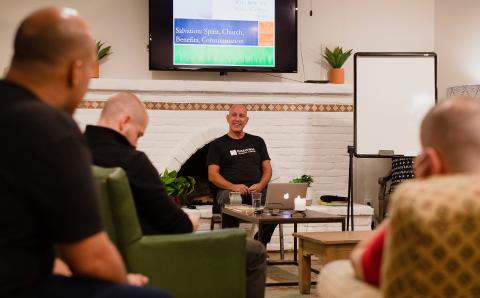When someone needs help, is praying for them enough? Or should Christians do more to directly help?
Though Christians often struggle with prayer, praying for someone in need can seem much easier than doing something to help them, especially when doing something requires sacrifice. Yet the gospel clearly calls Christians to self-sacrificial service, following Jesus’ example.
The apostle James writes, “What good is it, my brothers and sisters, if someone claims to have faith but has no deeds? Can such faith save them? Suppose a brother or a sister is without clothes and daily food. If one of you says to them, ‘Go in peace; keep warm and well fed,’ but does nothing about their physical needs, what good is it? In the same way, faith by itself, if it is not accompanied by action, is dead” (James 2:14-17).
Dietrich Bonhoeffer, a theologian in Nazi Germany, wondered why so many Christian Germans did nothing to help Germany’s Jews. He concluded that too many considered themselves righteous as long as they kept the Ten Commandments, regardless of the plight of their neighbors. Bonhoeffer responded by arguing that just as God took responsibility for us in Christ, so we must take responsibility for our neighbors.
But how can a Christian possibly take responsibility for all the needs in her community? Here Bonhoeffer turned to the idea of vocation. Each Christian has a particular calling to serve those in her immediate context as a parent, a church member, or a neighbor. Her resources and vocation limit what she can do for others.
The scenario James raises is that of a brother or a sister. The apostle Paul likewise writes, “As we have opportunity, let us do good to all people, especially to those who belong to the family of believers” (Gal. 6:10). All some are able to do is speak or pray. Others can and should do much more.
We should also remember that we fulfill our responsibilities collectively, not individually. For example, we help others through our church’s diaconate. We also do so by paying taxes.
Nor should we belittle prayer. While we should do more than pray for those who need our help, we should certainly not do less.
About the Author
Matthew J. Tuininga is professor of Christian ethics and the history of Christianity at Calvin Theological Seminary. He lives in Wyoming, Mich. He is the author of The Wars of the Lord: The Puritan Conquest of America’s First People.









